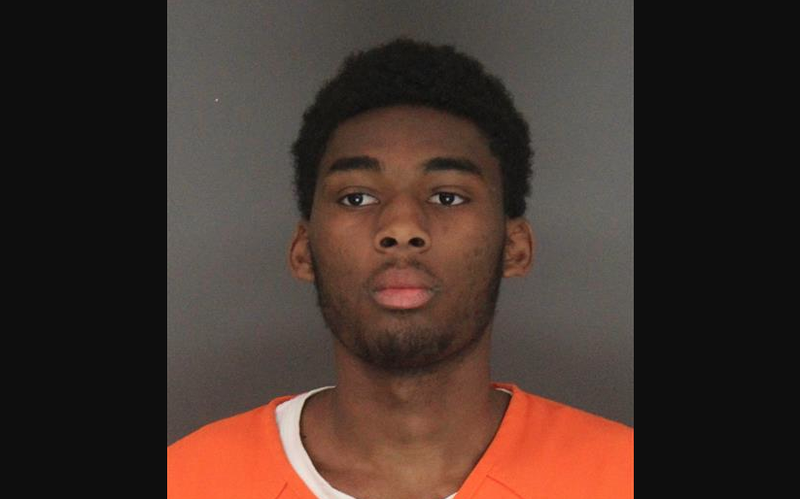FORT SMITH -- An 18-year-old man was sentenced Monday to 50 years in prison for killing a University of Arkansas at Fort Smith engineering student and robbing his friend at gunpoint.
Telling Shakur Sharp that he hoped he would one day leave prison and have the opportunity to do good things, Sebastian County Circuit Judge Stephen Tabor sentenced Sharp for the Jan. 23, 2016, shooting death of 22-year-old Kaleb Watson, the kidnapping of Bailey Smith, 21, and the aggravated robbery of both.
"Kaleb Watson lost his chance [to do good] because of decisions you made," Tabor told Sharp in the 20-minute hearing. "Every day that passes is a treasure stolen from Kaleb, Bailey Smith and their families."
Tabor sentenced Sharp to 30 years for first-degree murder, to two 10-year sentences for two counts of aggravated robbery -- to run consecutively with the murder sentence -- and another 10 years on the kidnapping charge, which Tabor ordered to run concurrently with the other sentences.
Sharp pleaded guilty to all four charges Sept. 20. Tabor held a sentencing hearing Oct. 2 during which family, friends and others testified for Watson, Smith and Sharp.
Tabor asked Sharp at the outset of the hearing if he had anything to say before he read a six-page sentencing statement. Sharp, dressed in an orange jail uniform and shackled hand and foot, declined to speak.
Watson's parents, Ricky and Linda Watson of Hagarville in Johnson County, and Smith, of Fort Smith, sat quietly in the courtroom as they had in every hearing in the case over the past nine months, always flanked family and friends.
Sharp was charged along with two others, his brother James Sharp and Dionte Parks, both 17.
James Sharp and Parks are appealing Tabor's ruling earlier this year to keep their cases in circuit court rather than transfer them to juvenile court. All three were juveniles at the time of the shooting.
The three are accused of conspiring to rob Watson, who lived two doors down from Parks. According to statements they gave police after their arrest, Parks knocked on Watson's front door as a distraction while the Sharp brothers entered through the unlocked back door.
Parks ran home rather than join the other two in the robbery as they had planned.
With one robber holding Watson and Bailey -- who was visiting Watson to watch a Razorbacks game -- at gunpoint, another intruder tied up Watson with a shoestring and then went to a closet and began loading Watson's guns into a bag.
As Shakur Sharp moved to Watson's television to take his video game, Watson jumped him, they struggled and Watson was shot several times.
The Sharps were arrested days later in Little Rock.
During the sentencing hearing earlier this month, Watson's family and friends testified about his popularity in school, his loving relationship with his family, his outgoing personality and his bright future.
Witnesses also testified that Shakur Sharp excelled in school, attended church, joined in social activities and showed promise as long as he was in a home with discipline and structure that aunts and other strong mother figures provided.
But despite the stable homes and positive influence the women gave him, Sharp continued to return to his mother, a drug addict who had little contact with him and her other children, according to witnesses. His grades fell, he got in trouble at school and there was no one to keep him on the right path.
"I wonder ... if things would have been different if Mr. Sharp's father was behind him instead of behind bars," Tabor said.
"I wonder if things would have been different if his mother was as committed to her son as she was to her addiction."
Tabor said he couldn't restore Watson his life, the Watsons their son or Smith her peace of mind.
All he could do was apply the facts to the law and come up with a sentence he believed to be fair.
Tabor explained his process in reaching his decision on Sharp's sentence. He said he consulted state law and sentencing guidelines, reviewed the evidence presented at the sentencing hearing and considered various factors, such as Sharp expressing remorse only after being arrested and whether Watson shared responsibility for his own death by trying to subdue Sharp.
A Section on 10/24/2017

